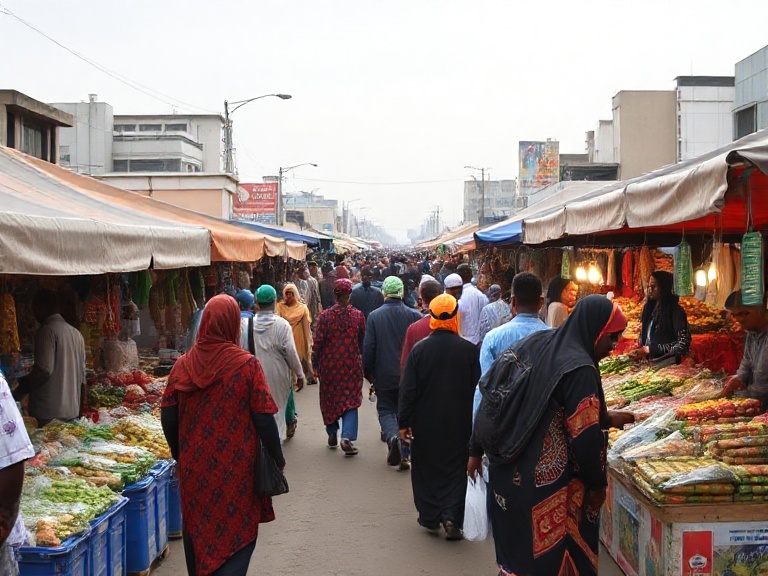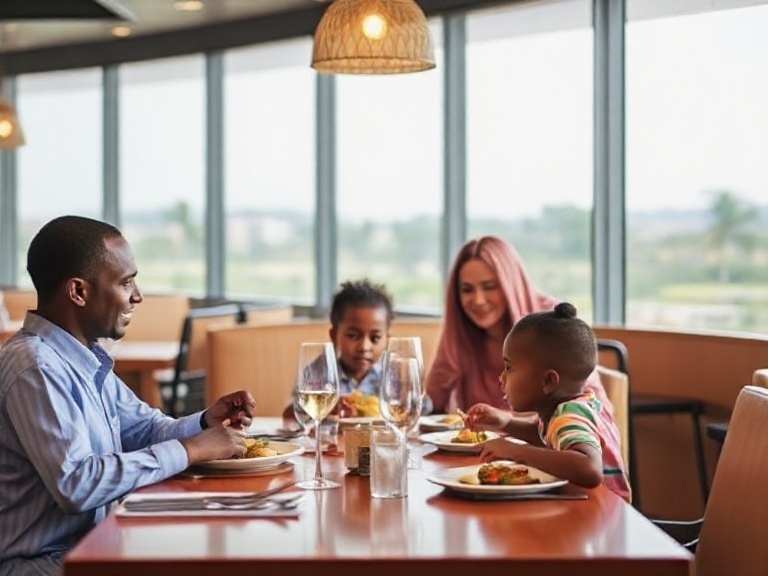A Beginner's Guide to Eating Your Way Through Abuja — Neighborhood by Neighborhood
Hussein - AbujaEats
Food Writer & Critic
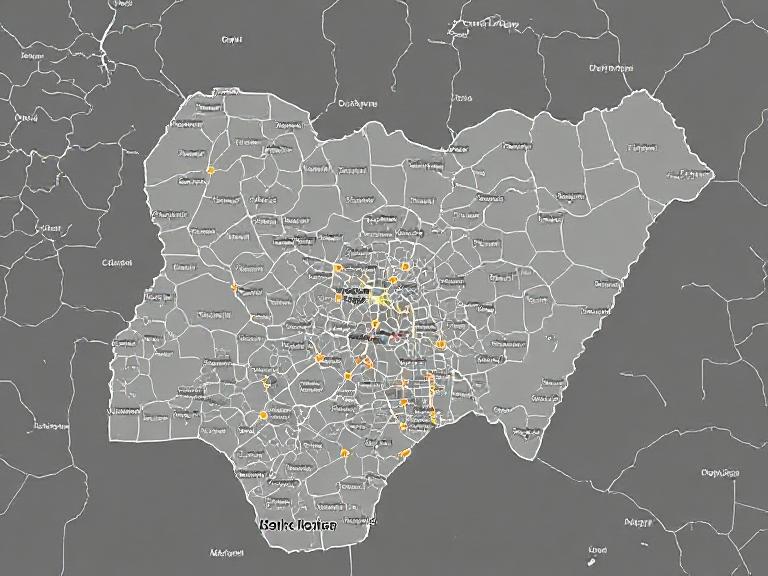
Abuja's food scene can feel overwhelming for first-timers. With restaurants scattered across numerous districts, each with its own character and specialties, knowing where to start your culinary adventure requires insider knowledge. This comprehensive neighborhood guide breaks down Abuja's dining landscape, helping you navigate the capital like a local food expert.
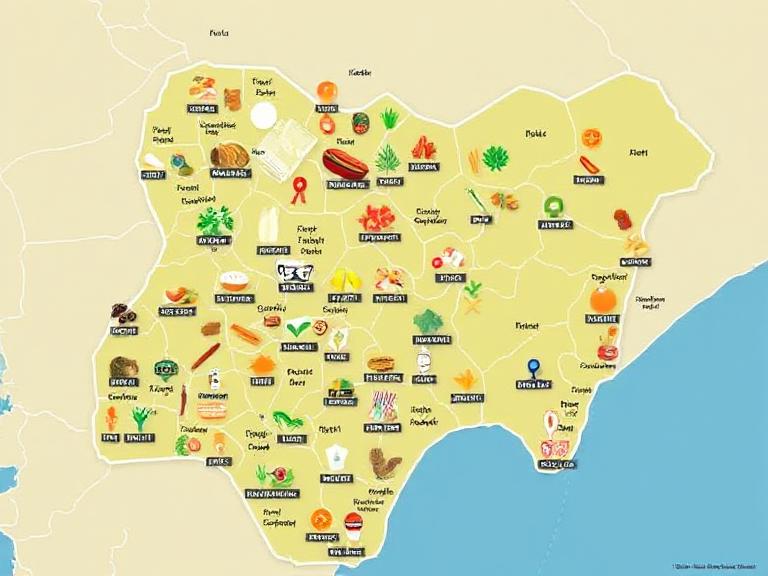
Understanding Abuja's Layout
Unlike organically grown cities, Abuja was purpose-built as Nigeria's capital, resulting in a well-organized structure of distinct districts. Each neighborhood developed its own identity, influenced by its residents, location, and original purpose in the city's master plan. This organization makes navigating the food scene surprisingly straightforward once you understand the basics.
The city's main dining districts form a rough arc through the central areas, with each offering different price points, cuisines, and atmospheres. Whether you're seeking budget-friendly local meals, upscale international dining, or authentic street food experiences, knowing which neighborhood to visit will save you time and ensure you find exactly what you're craving.
Wuse: The Culinary Heart of Abuja
Wuse 2: Restaurant Central
Wuse 2 stands as Abuja's undisputed dining epicenter. This bustling commercial district packs more restaurants per square kilometer than anywhere else in the city, creating a food lover's paradise where you can eat your way around the world without leaving a few blocks.
What Makes It Special:
The neighborhood's central location attracts office workers for lunch, making it perfect for observing Abuja's professional class in their natural habitat. By evening, it transforms into a social dining destination where friends meet, dates happen, and food becomes the centerpiece of connection.
Food Character:
Wuse 2 offers incredible variety. You'll find everything from hole-in-the-wall Nigerian joints serving authentic local cuisine to polished international restaurants with extensive wine lists. The density of options creates healthy competition, keeping quality high and prices relatively reasonable for the location.
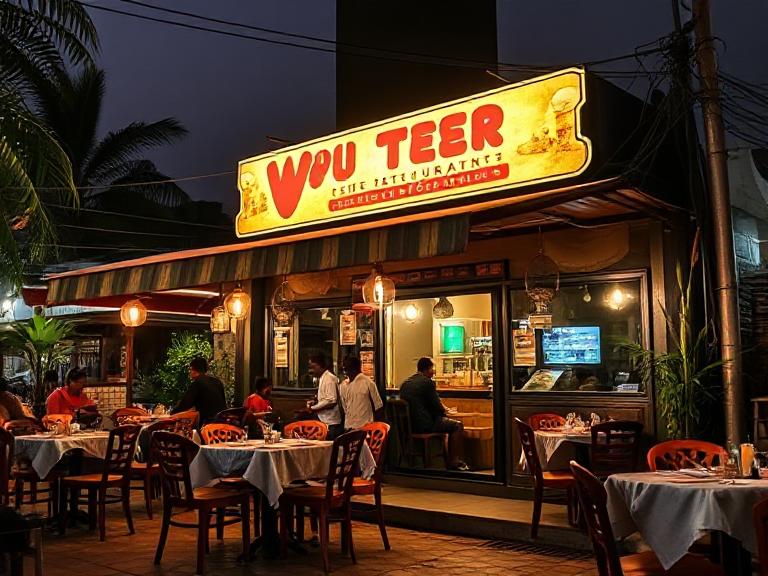
Must-Try Experiences:
- Nigerian Comfort Food: Otega Restaurant operates 24/7, serving classic jollof rice, pepper soup, and swallow dishes whenever hunger strikes
- Indian Cuisine: Wakkis has earned legendary status for authentic curries and tandoori specialties
- Late-Night Dining: Icebar Restro combines trendy vibes with affordable meals, staying open late for night owls
- Continental Fusion: Tulip Bistro offers elegant dining with diverse menu options
Budget Expectations:
Meals range from ₦3,000 for local spots to ₦15,000+ for upscale dining. The variety means you can eat here daily without breaking the bank if you choose wisely.
Insider Tips:
- Lunch hours (12-2 PM) get extremely busy; arrive early or late to avoid crowds
- Street parking can be challenging; consider using ride-hailing services
- Many restaurants offer lunch specials with better value than dinner menus
- The area around Aminu Kano Crescent has the highest concentration of quality restaurants
Wuse 1: The Quieter Alternative
Often overshadowed by its busier neighbor, Wuse 1 offers a more relaxed dining experience with hidden gems that locals cherish. The neighborhood has a residential feel with restaurants that prioritize regulars over tourists.
Food Character:
Expect family-run establishments, neighborhood favorites, and restaurants that have perfected their specialties over years of operation. The pace is slower, service more personal, and atmosphere more intimate than Wuse 2's hustle.
What to Look For:
- Small Nigerian restaurants with loyal followings
- Cafes perfect for working or studying
- Bakeries selling fresh bread and pastries
- Affordable lunch spots popular with nearby residents
Maitama: Where Elegance Meets Appetite
Maitama represents Abuja's upscale dining scene. This leafy, affluent neighborhood hosts restaurants that emphasize ambiance, service, and premium ingredients alongside their culinary offerings.
What Makes It Special:
Wide, tree-lined streets create a serene dining environment. Many restaurants feature outdoor seating where you can enjoy Abuja's pleasant evenings. The neighborhood's wealthy residents and diplomatic community support high-end establishments that might struggle elsewhere.
Food Character:
Expect refined presentations, extensive wine lists, and prices that reflect the premium experience. Maitama restaurants often occupy beautifully designed spaces—converted houses with gardens, modern buildings with floor-to-ceiling windows, or rooftop venues with city views.
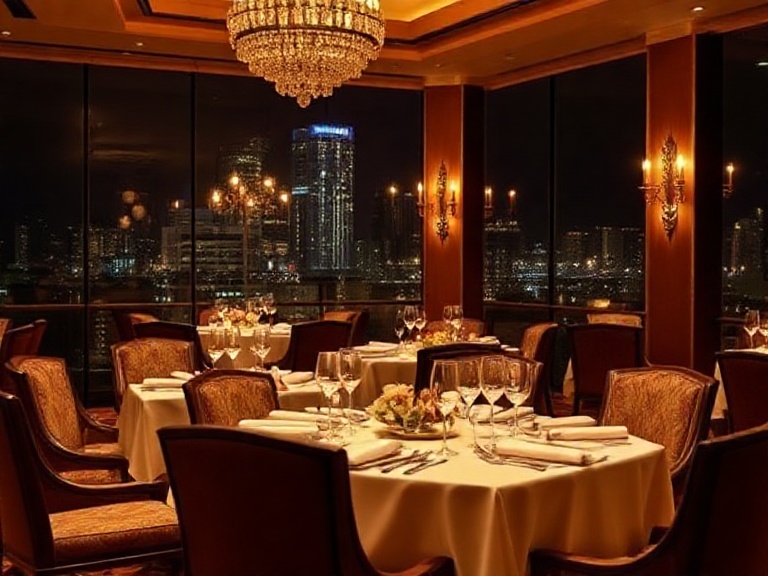
Dining Highlights:
- Fine Dining: Dunes Continental Restaurant offers gourmet international cuisine in luxurious settings
- Mediterranean Flavors: BluCabana provides sophisticated Mediterranean dishes with poolside ambiance
- Rooftop Experiences: Several establishments offer elevated dining with panoramic views
- International Cuisine: Lebanese, Italian, and Asian restaurants maintain authentic standards
Budget Expectations:
Plan for ₦10,000-₦30,000 per person for a full meal with drinks. Some lunch specials offer better value, but Maitama generally caters to those willing to pay for quality and atmosphere.
Best For:
- Special occasions and celebrations
- Business dinners and client entertainment
- Romantic date nights
- Experiencing Abuja's upscale lifestyle
Insider Tips:
- Reservations recommended for weekend dinners
- Dress codes tend toward smart casual
- Many restaurants have separate bar areas perfect for pre-dinner drinks
- Sunset timing (around 6-7 PM) offers the best rooftop dining experience
Garki: The Accessible Middle Ground
Garki strikes a balance between Wuse's bustle and Maitama's elegance. This mixed-use district combines residential areas, offices, and commercial spaces, creating diverse dining options that cater to various budgets and tastes.
What Makes It Special:
Garki's accessibility—both geographically and economically—makes it popular with middle-class Abuja residents. The neighborhood feels more authentically Nigerian than some upscale areas, with restaurants reflecting local tastes and preferences.
Food Character:
Expect solid, reliable dining without pretension. Garki restaurants focus on good food at fair prices, with generous portions and flavors that satisfy rather than impress. It's where Abuja eats on regular weeknights.
Dining Options:
- Local Favorites: Numerous spots serving authentic Nigerian cuisine
- Fast Food: Both international chains and local equivalents
- Casual Dining: Family-friendly restaurants with diverse menus
- Street Food: Active evening food scene with grilled meats and snacks
Budget Expectations:
Most meals fall in the ₦2,500-₦8,000 range, making Garki one of Abuja's most budget-friendly dining districts without sacrificing quality.
Best For:
- Everyday dining
- Family meals
- Quick lunches
- Authentic local food experiences
Asokoro: The Hidden Food Haven
Asokoro flies under the radar compared to more famous dining districts, but food lovers in the know appreciate its unique offerings. This primarily residential neighborhood hosts restaurants that build loyal followings through consistency and personal service.
What Makes It Special:
Lower rent and less foot traffic mean Asokoro restaurants survive on quality rather than location. They develop neighborhood identities, becoming extensions of the community rather than just businesses.
Food Character:
Expect home-style cooking, family recipes, and chefs who know their regular customers by name. Asokoro restaurants often feel like eating at a friend's house—if that friend happened to be an excellent cook.
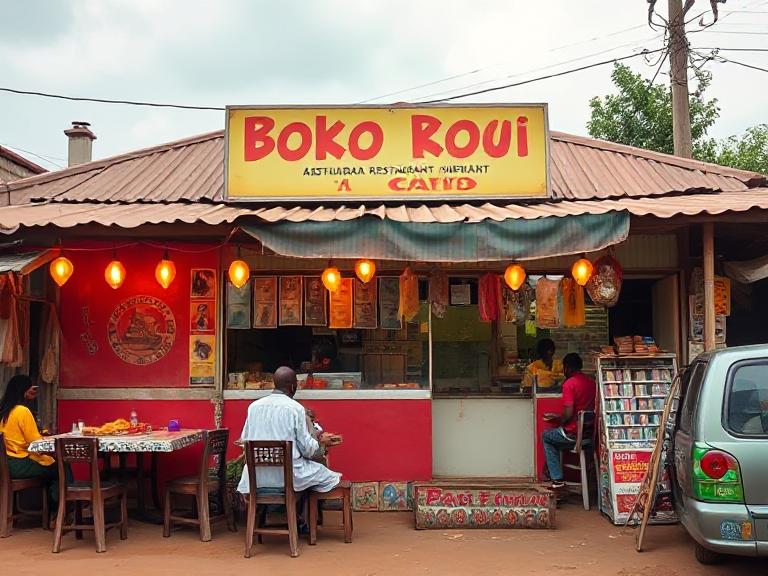
Dining Highlights:
- Nigerian Home Cooking: Restaurants serving traditional dishes with authentic flavors
- International Options: Smaller establishments offering genuine ethnic cuisine
- Cafes and Bakeries: Perfect for breakfast or afternoon breaks
- Hidden Gems: Restaurants that locals guard as secrets
Budget Expectations:
₦3,000-₦10,000 covers most meals, with excellent value for the quality provided.
Best For:
- Discovering under-the-radar favorites
- Relaxed, unpretentious dining
- Supporting local businesses
- Escaping tourist crowds
Gwarinpa: The People's Food Hub
Gwarinpa, one of Abuja's largest residential areas, offers dining that prioritizes value, portion size, and flavors that feel like home. This neighborhood represents everyday Abuja—where regular people eat regular meals.
What Makes It Special:
Gwarinpa's massive population creates fierce competition among restaurants. Only establishments offering genuine value survive, making it a reliable destination for budget-conscious diners who refuse to compromise on taste.
Food Character:
Hearty portions, bold flavors, and prices that won't shock you. Gwarinpa restaurants understand their audience: families, students, and working professionals who want satisfying meals without ceremony.
Dining Options:
- Local Staples: Numerous spots for jollof rice, fried rice, and Nigerian soups
- Fast Casual: Quick-service restaurants with diverse menus
- Street Food: Active evening scene with suya, shawarma, and grilled items
- Family Restaurants: Spacious venues accommodating large groups
Budget Expectations:
₦1,500-₦5,000 covers most meals, with some options even cheaper. Gwarinpa offers Abuja's best value dining.
Best For:
- Budget travelers
- Families with children
- Authentic local food experiences
- Large group dining
Insider Tips:
- Hytaste Restaurant has multiple locations offering consistent quality
- Evening hours (6-9 PM) see the most activity
- Many restaurants offer takeaway with generous portions
- The area around 4th Avenue has high restaurant density
Jabi: The Modern Food Destination
Jabi represents Abuja's newer development, with modern shopping complexes and contemporary restaurants that appeal to young professionals and families.
What Makes It Special:
Jabi Lake Mall and surrounding developments have created a concentrated dining destination where shopping and eating combine seamlessly. The neighborhood attracts crowds seeking both convenience and variety.
Food Character:
Modern, Instagram-friendly establishments with diverse menus. Jabi restaurants understand contemporary dining trends—from presentation to service to social media presence.
Dining Highlights:
- Mall Dining: Jabi Lake Mall hosts numerous restaurants and food courts
- Lakeside Views: Restaurants overlooking Jabi Lake offer scenic dining
- Contemporary Nigerian: The Yellow Chilli and similar spots reimagine traditional cuisine
- International Chains: Familiar brands for those seeking consistency
Budget Expectations:
₦4,000-₦12,000 for most meals, with food court options on the lower end and sit-down restaurants higher.
Best For:
- Combining shopping with dining
- Family outings
- Modern dining experiences
- Scenic meal settings
Utako: The Emerging Scene
Utako is developing its own food identity, with new restaurants opening regularly and established spots building reputations. This neighborhood represents Abuja's dining future—experimental, diverse, and increasingly sophisticated.
What to Explore:
- New concept restaurants testing innovative ideas
- Fusion cuisine blending Nigerian and international flavors
- Cafes and coffee shops with specialty beverages
- Evening entertainment venues with food service
Central Business District (CBD): Power Lunch Territory
The CBD caters primarily to government workers, diplomats, and business professionals, creating a lunch-focused dining scene with some evening options.
Food Character:
Quick, efficient service during lunch hours, with restaurants understanding that diners have limited time. Expect business-casual atmospheres and menus designed for professional settings.
Dining Options:
- Amala Central: Legendary for authentic Yoruba cuisine
- Hotel Restaurants: Upscale options in major hotels
- Quick Service: Fast-casual spots for busy professionals
- International Cuisine: Diverse options reflecting diplomatic presence
Practical Navigation Tips
Getting Around
- Ride-Hailing: Uber and Bolt operate throughout Abuja; most reliable for restaurant hopping
- Personal Vehicle: Parking availability varies; Wuse 2 most challenging, Gwarinpa easiest
- Walking: Possible within neighborhoods but not between them due to distances
Timing Your Visits
- Lunch (12-2 PM): Busiest time in commercial areas; arrive early or late
- Dinner (6-9 PM): Peak hours for most restaurants; reservations recommended for popular spots
- Late Night: Wuse 2 and Garki offer most 24-hour or late-night options
Budget Planning by Neighborhood
Budget-Friendly: Gwarinpa, Garki, Wuse 1 Mid-Range: Wuse 2, Asokoro, Jabi Upscale: Maitama, CBD hotels, select Wuse 2 establishments
Safety Considerations
All mentioned neighborhoods are generally safe for dining, but standard precautions apply:
- Use reputable transportation
- Dine in well-lit, populated areas
- Keep valuables secure
- Trust your instincts about establishments
Creating Your Food Journey
The beauty of Abuja's neighborhood dining scene is that you can craft experiences matching your mood, budget, and culinary curiosity. Start with one neighborhood, explore thoroughly, then venture to the next. Each district offers enough variety for multiple visits, ensuring you'll always discover something new.
Whether you're seeking budget-friendly Nigerian comfort food in Gwarinpa, upscale international cuisine in Maitama, or the diverse options of Wuse 2, Abuja's neighborhood-by-neighborhood food scene ensures every meal becomes an adventure.
Ready to explore Abuja's neighborhoods? Follow AbujaEats for detailed restaurant features, insider tips, and the latest dining news from across Nigeria's capital.
Never Miss a Food Review
Join our community of food lovers and get weekly restaurant recommendations, exclusive dining tips, and the latest food news in Abuja.
Own a Restaurant in Abuja?
Get featured on AbujaEats and reach food lovers across the city.
List Your Restaurant